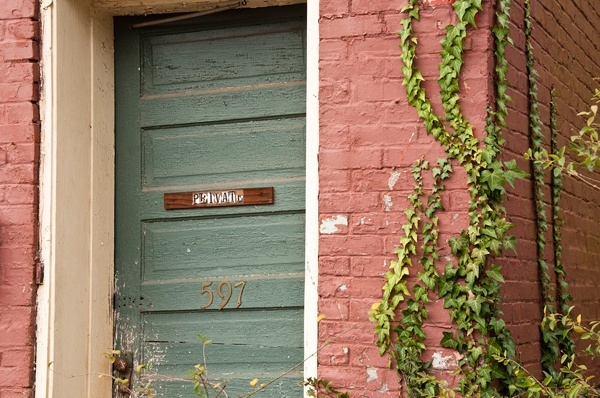
F
or me, being a Southern writer has meant being cast in a net, caught in a web, woven into a network of relationships. It means knowing all the stories that link my parents to my grandparents and to their grandparents. It means knowing most of my friends’ parents and often their grandparents and cousins too.
It means my grandfather’s ancestors looking down on us from his portrait at the top of the stairs in my grandparents’ house. A stout and fierce man of sixty somehow buttoned into the Confederate uniform he’d worn in his twenties, which still lies folded in the cedar chest in the attic. His left sleeve hangs empty, missing the arm he lost to the Union at Brice’s Crossroads, and he scowls down at us, despite the emotional and almost tender letters that sit folded and yellowing in the local library archives, letters in which he admits to his treasured fellow veterans that their shared cause had been misguided. He scowls down at us, tormented about whether or not we will know to do the right thing.
For me, being a Southern writer means my parents now live in my grandparents’ house where my mother tends her mother’s native azaleas, which tower a glowing pale peach well above our heads. It also means I often leave that family home and head for another family home on the far side of town. This small brick house at the end of a short street, deep in what is now a rough neighborhood, was once owned by a woman who came to work for my parents when I was seven years old. Mrs. Ida Mae Washington drove a huge lemon-yellow car, smoked unfiltered Pall Malls, and taught me how to be real within a world that emphasized facade.
Her daughter lives in her mother’s house now too, and it’s still tumbling full of family, children, grandchildren, cousins, neighbors, and even a great-niece. After twenty years of crisscrossing back and forth across town, weaving my own net, those living in this house welcome me. They tell me their stories, especially the one their great Aunt Sook told them about climbing onto the auction block as a teenager, picking out a white man who seemed reasonable, and flirting with him to get him to buy her, as a way to stay safe. Even now, she watches over her family just as my grandfather’s grandfather watches over us.
For me, being a Southern writer means telling the whole of this big story, which I’m much more able to do when I look back from a great distance, from under the endless windswept sky of New Mexico.

